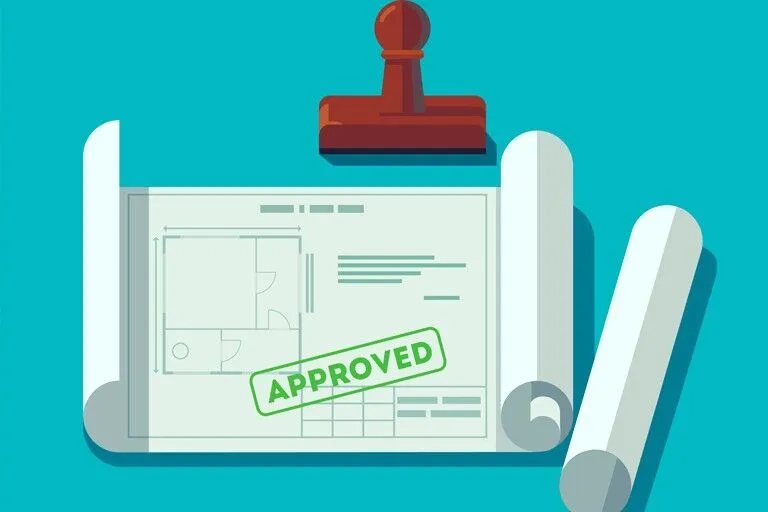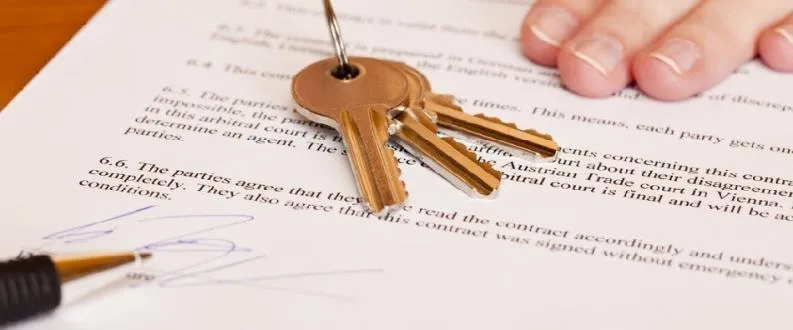Table of Content
▲
Purchasing a home requires a considerable amount of time, as finding the right property is crucial. A newly constructed apartment in a large housing society may not align with your preferences. Perhaps, an older home with a garden or one situated in the heart of the city with historical significance is more appealing; resale homes offer various advantages in such scenarios. However, what precisely constitutes a resale property? What benefits does it offer? And what is the process for registering a resale property in your area? This blog aims to elucidate these aspects.
What is a Resale Property?
A resale home is a home that was purchased and is ‘For Sale’ by the initial buyer. A resale indicates that the property is being sold to someone new from someone who was assigned the same property before. Essentially, the resale property can either occur from the first allotted or the beneficiary who had bought the same from someone else previously.
Benefits of Buying a Resale Flat

Resale properties are often deemed economically advantageous when compared to purchasing a ready-to-move-in home. Various factors, including the property's age, final cost, depreciation over the years, and potential renovation needs, contribute to reducing the overall expense. Regardless of the specific appeal that draws you to consider a resale property, numerous advantages come with buying a resale flat, such as –
Also Read: A quick guide to preparing yourself financially to buy a house
Location
These homes are situated in slightly older neighborhoods within the city. In contrast, new flats are typically located on the outskirts or in newer and developing parts of cities. These newer areas are well-planned and already feature a comprehensive set of amenities in the vicinity.
Larger Houses
As the city grows, you’ll notice that houses are getting smaller and smaller. The older homes are spacious and tend to be much larger, have higher roofs and are still in the heart of popular residential layouts
Ready to move in
There's no need to wait for construction completion, and you won't have to concern yourself with setting up internet, cable, gas connections, etc. All these amenities will already be in place, as the previous owners would have taken care of almost everything you need in a house, ensuring everything is up and running.
Save on Taxes
Buying a resale house means less tax for you. According to the Income Tax Act, you can get a tax exemption of up to Rs.1 lakh (on principal EMI can be availed under section 80C of income tax act ). You can also get a tax deduction of up to Rs.5 lakh for home loan interest under 24B.
Also Read: Home loans' tax benefits in 2024
Things to Consider Before Buying the Resale Flats
There are a lot of things that you should look out for while buying a resale house. Some of them are:
The Age of the Property
While the saying goes, "Old is gold," it's essential to consider how old is too old when it comes to properties. It's advisable to steer clear of any property that exceeds 40-50 years in age. Beyond this timeframe, you may observe significant structural damage in both the building and home. The necessary renovations and additional repairs could result in spending much more than initially budgeted.
Association Rules and Regulations
If you are buying a home in a society, there is always an association that governs what happens in the society. You will need to check with them about what kind of renovations/modifications are allowed in the home you are purchasing. Some societies will have rules about the types of renovation, some about timings when work can be carried out, etc. If you are buying a home that requires plenty of renovation, it is safest to get the approval of the building association first.
Home Insurance and Down Payment
When you are going to buy a resale house you should keep in mind that the amount, you’ll get from insurance is going to be lower than what you will get if you were buying a new home. The down payment for the house will also be higher than if you buy a new house, for resale houses you will need to pay at least 20% as a down payment.
Pending Dues
One crucial aspect to investigate is whether there are any outstanding dues that the homeowners still need to settle. These dues could encompass unpaid bills for utilities such as water, electricity, or maintenance. Often, the owner may not willingly disclose this information, so it is advisable to inquire about it as early as possible.
Also Read: Home Loan Benefits to Women and Joint Borrowers
8 Important Documents to Check Before Buying a Resale Flats

No sale of property, apartments, villas etc. is possible without the right documents. These are the documents required for resale flat registration when buying a resale property-
- Sales Deed: the primary legal document
- Plan: the building plan will tell you if the building is sanctioned and approved
- Occupancy Certificate: says the building is fit for habitation
- Encumbrance Certificate: the house has no liabilities
- Tax Receipts: there are no pending tax payments, everything is up to date
- Mutation Deed: access to all previously registered agreements
- NOC: No Objection certificate
- Possession Certificate: from builder to owner then to you
Also Read: Home Loan Benefits to Women and Joint Borrowers
What is the Process of Buying a Resale Flat?

After you find the house that you wish to buy, you might be wondering what exactly is the second-hand house purchase procedure? Well in simple steps, here are certain resale flat purchase procedures you need to follow –
- Meet your financial advisor, if you don’t have one, you can talk to your banker and seek his guidance. They will help you appraise the home and help you plan what is to be done with regard to your finances.
- Get the due diligence done for the property. All the documents, the value of the property etc. needs to be checked by professionals. Things like title verification are very important, you can avail this service here.
- If the previous owner had bought the house with a loan, then you need someone who will check the loan documents. You need to visit the bank and find out how much of the loan has been cleared, how much is pending and what is the tenure etc.
- Once the above is complete and clear, you will need to get your Sale Agreement created. This needs to be done by a professional as it is a key document in the house buying process.
- Now, you need to talk to a bank or HFC (Housing Finance Company) for assistance with a home loan.
- Once the Sales Deed and Sales Agreement are ready and the terms have been fulfilled, you will need to register the deed. The process of executing and registering the sales deed will happen at the sub-registrar’s office.
- At the time of registration, you will also need to provide legal and technical details or clarifications if required, so that the disbursement of the sanctioned loan amount happens on time.
- After the sales deed is registered, you as the buyer will need to start working on post-purchase formalities like Katha transfer, changing the name on electricity, water etc meters.
Also Read: Top 14 Common Reasons for Home Loan Application Rejection by Banks.
Avoid rushing into a property purchase, as it is a process that requires time and patience. It is also recommended to follow all the steps outlined above and adhere to the specified order. Skipping steps or deviating from the sequence can result in unnecessary delays and disputes. Errors in any of the documents may lead to significant financial losses, creating a chaotic situation and potentially causing havoc with your personal finances. Therefore, it is advised to collaborate with experienced professionals, including lawyers, bankers, or those involved in the due diligence process.
What is the Resale Flat Registration Process?
The resale flat registration process is typically more or less similar across states except for a few additional steps here and there as per the geography. To register a resale property in Bangalore for example, you should follow the steps below:
- Collect the critical documents from the seller including the sale deed, mother deed, Katha certificate, tax paid receipt, katha certificate, occupation certificate, no objection certificate from the bank, society, maintenance office, Aadhar, etc.
- Take the help of a lawyer to go through the documents and any necessary preparations
- Note down the complete terms of payment with the seller including the gross amount, total instalments, duration of the payment etc.
- Have a sales agreement prepared and signed by the buyer, seller, as well as witnesses, including the token transfer to cement the deal
- Get a sale deed draft, and share a copy of the sale agreement along with a copy of the sale deed to the seller before execution to establish mutual trust, get all copies signed
- Visit the sub-registrar office in the locality where the property is located, complete the transaction with the seller and complete the registration process of the resale property.
Also Read: How to reduce home loan interest rate?
What are the Charges for Buying a Resale Flat?
Along with the several expenditures associated with the purchase of a resale flat, you as a buyer will need to pay stamp duty and registration charge which is not typically factored in by the banks. The stamp duty charges for a resale flat generally vary between 2-8% of the gross deal value and the registration fee is usually 1% of the sale value.
Hiring the right team to assist you might seem like a waste of money, but if these basics are not in order you could end up with a much greater loss. Don’t do things the hard way when there is a more convenient option, sit back and relax while the NoBroker team helps you with the purchase of your home click below for more details.
Also Read: How to save tax on rental income?



_1772441702.webp)


Ans 1. Ans: A resale home is a home that was purchased and is ‘For Sale’ by the initial buyer. A resale indicates that the property is being sold to someone new from someone who was assigned the same property before. Essentially, the resale property can either occur from the first allotted or the beneficiary who had bought the same from someone else previously. For example, a second hand flat in Patna will be considered a resale property.
Ans 2. Ans: Depending on the state and region, you need everything from a sale deed, mother deed, Katha certificate, tax paid receipt, Katha certificate, occupation certificate, no objection certificate from the bank, society, maintenance office, Aadhar, etc for a property resale.
Ans 3. Ans: As per the resale flat buying process, the stamp duty charges for a resale flat generally varies between 2-8% of the gross deal value and the registration fee is usually 1% of the sale value.
Ans 4. Ans: A resale home comes at a lower cost, is ready-made, and you also get payment schedules for resale flats and tax benefits like a new home. However, the resale property may also be old needing maintenance, may not be eligible for home insurance, and you have an added cost of constructing new amenities.
Ans 5. Ans: Based on the flat buying process, the premium of home insurance for a resale property is lower than a new one.